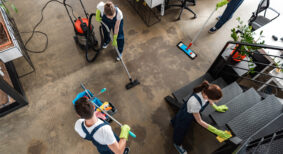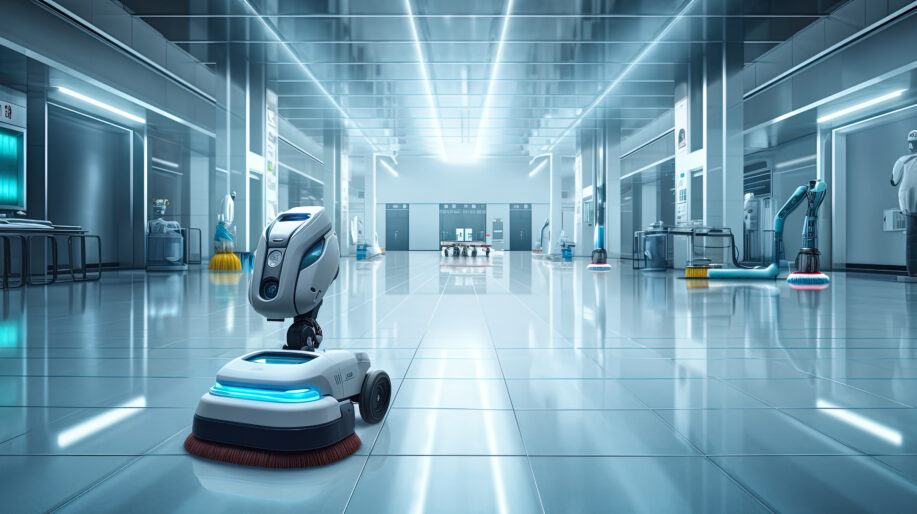With technology constantly improving building operations, how have these changes affected commercial cleaners and their work? Smart buildings use technology to gain valuable data, helping cleaners get the job done faster and more accurately. Experts predict that as insight and sustainability goals grow, the number of smart buildings worldwide is projected to climb to 115 million by 2026, which is an increase of more than 150 per cent. So, it looks like smart buildings are here to stay.
There are several advantages that smart technology brings to buildings but how are commercial cleaners affected by this type of innovation?
Managing inventory
With smart technology, it’s easy to keep track of supplies like hand sanitizer or paper towels, monitor when levels are getting low, and limit the amount of waste. It means that cleaners do not need to spend as much time checking on supply levels when these items are automatically dispensed and tracked because they will receive a notification when specific areas need attention.
Because the technology operates in real-time, and supplies can be quickly replenished as needed, the likelihood of customers complaining about missing products is reduced as well.
Creative scheduling
Smart building technology often includes sensors that monitor traffic throughout the building. This means that it can determine the best times for cleaners to get the job done. Now, this might mean a little creative scheduling for cleaners, but with flex hours and lower building occupancy, schedules are shifting out of necessity anyway. Cleaners who can be flexible with their schedules may be able to better manage their labour, stand out from the competition, and increase their margins.
RELATED: How cleaners can still thrive with lower building occupancy
Innovative cleaning
The rise of smart building technology has created a demand for cobotics: robotic innovation that works alongside humans to record and improves performance. Used by cleaners, this technology helps to boost results, allocate labour to less repetitive tasks, and collect accurate data so cleaners can track their performance, increase productivity, and improve their practices.
Smart buildings are beneficial for facility and maintenance managers but there are advantages for commercial cleaners, too. By zeroing in on the data, smart buildings can actually help cleaners do their more efficiently, save on labour, and provide better service for their customers.








